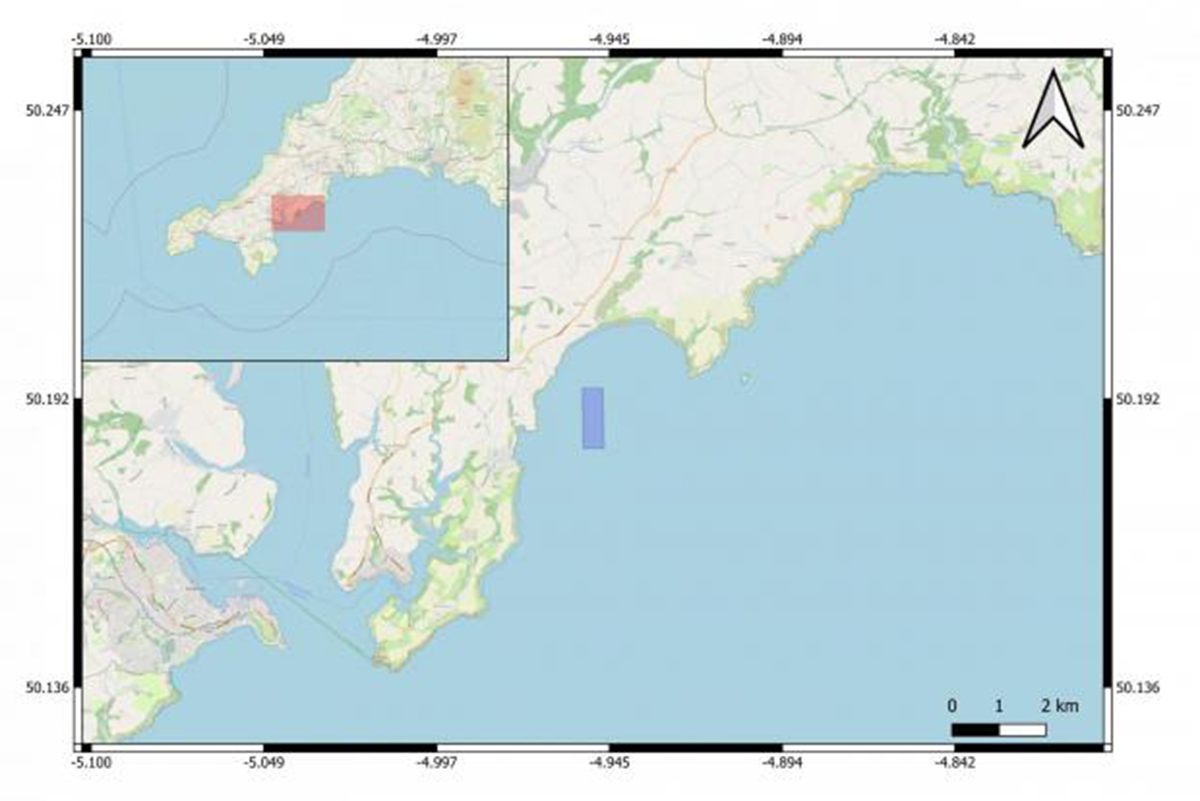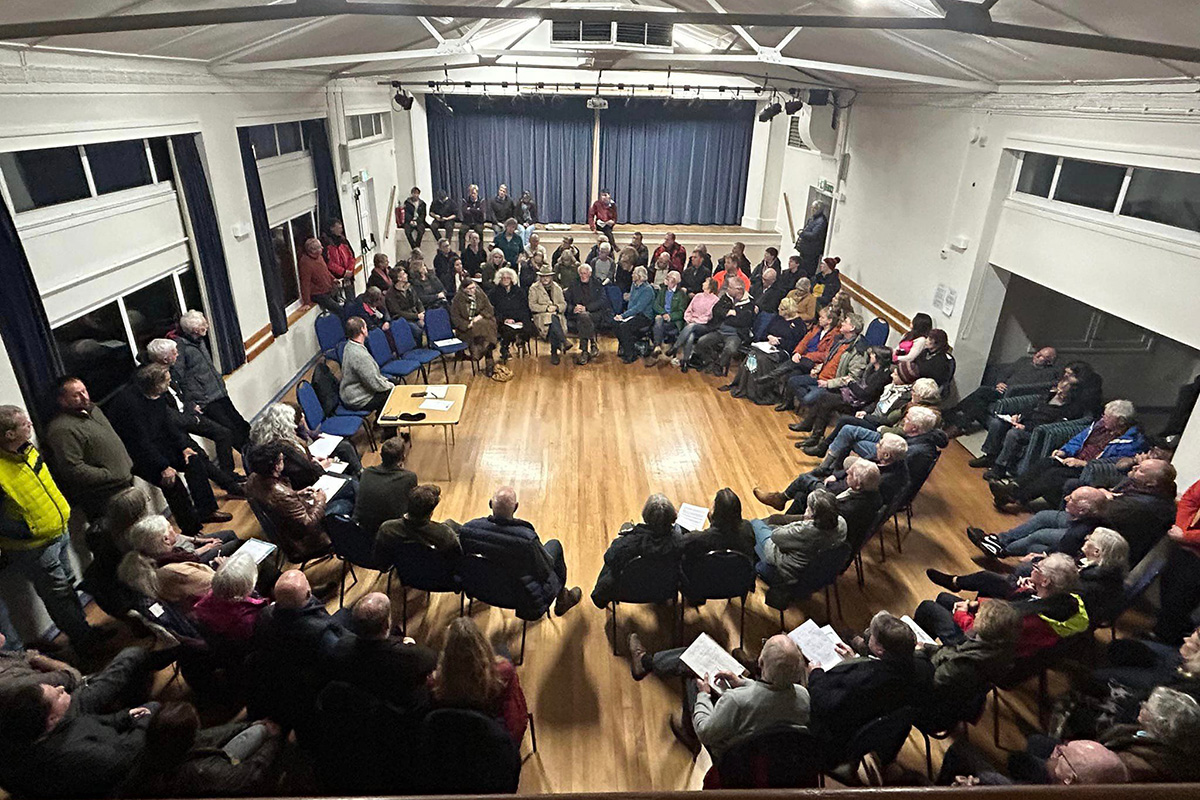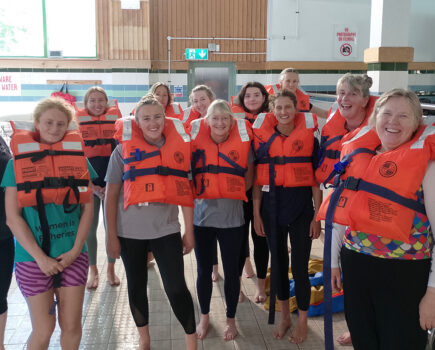Inshore fishermen on the south coast of Cornwall have breathed a sigh of relief after applications for two seaweed farms were withdrawn, following a high-profile campaign that included a wide variety of maritime interests.
The twin proposals to develop the farms had been due to await a formal decision from the MMO, but ahead of this deadline, Biome Algae, the applicant, confirmed that given the level of local opposition, it would not be pursuing the application, and that it had informed the MMO that the application was being withdrawn.
The twin applications between them were to lease 110 hectares of seabed, that would become off limits to other marine users, with up to 9,400 floats in the water used to support a series of longlines on which the seaweed would be farmed.

The proposed location of the seaweed farms in Gerrans Bay.
In a statement confirming the withdrawal, Biome Algae said: “We acknowledge the many concerns that have been raised by the different members of the community.
“We still strongly believe in the positive environmental, economic and social benefits seaweed farming can bring to Cornwall. But as responsible operators, we also recognise that it is important to support and have the support of the communities within which we operate. As a result we respectfully withdraw our application.”
Prior to the announcement, a meeting to discuss opposition to the proposals had attracted over 200 locals, who expressed a variety of reasons for their objections.
One local fisherman, who did not want to be named, said: “The seaweed farms would have closed grounds we know locally as the Outer Bizzies, where there is good pollack fishing – not that the zero TAC will allow much fishing there this year – and the Inner Bizzies, where we catch lobster, bass and red mullet.
“It would also have made the small winter fishery for mackerel in Gerrans Bay very difficult.”
Opposition to the principle of a seaweed farm in the area was not universal. One fisherman pointed out that some of the ground covered is in effect a nursery area, popular with some anglers who catch undersize bass and pollack there – so a smaller seaweed farm there could potentially provide long-term benefits to stocks of both species by protecting the ground.
The Facebook page set up to co-ordinate the fight against the application, Save Gerrans Bay, posted a statement after the application had been withdrawn, which concluded: “In the words of King Garennius, one of the last kings of Cornwall, inhabitant of the Roseland, patron of Gerrans Bay, the king who from 552AD has overlooked us every day from his final resting place in Carne Beacon, ‘an trygh eth genev’ (the victory was mine).”

Over 200 people packed in to a public meeting in Portscatho to air their concerns. Many emphasised the fact that they were not against seaweed farming in principle, but that the implications of such developments should be fully understood, and that they should be developed in partnership with local communities.
Seaweed farms, however, look set to become much more widespread over the next decade. Proponents of the industry point out the huge benefits available from seaweed production, and the ever-growing range of products, from cattle feed through to health food supplements and biodegradable plastics, that the farms can produce.
The multinational Amazon has invested in a large-scale trial in Belgium growing kelp in between wind turbines there, and a number of other large- scale applications in both UK and European waters are known to be in development.
Seaweed farming is set to become yet another driver of spatial squeeze – although there is also growing evidence from research, still in its early stages, that suggests that sensitively sited farms may have some positive impacts on wider ecology and fisheries.
This story was taken from the latest issue of Fishing News. For more up-to-date and in-depth reports on the UK and Irish commercial fishing sector, subscribe to Fishing News here or buy the latest single issue for just £3.30 here.
Sign up to Fishing News’ FREE e-newsletter here.








